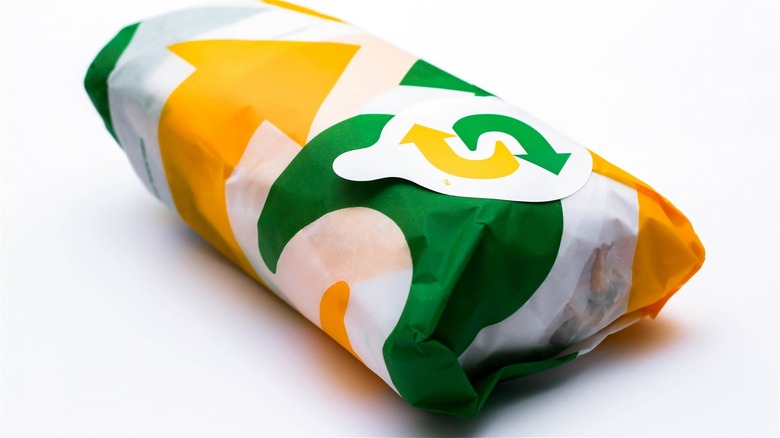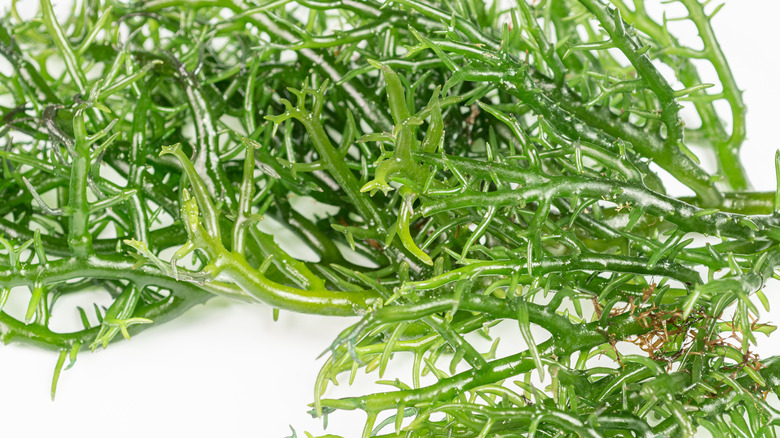The Subway Menu Item With A Strangely Fishy Ingredient
Subway is no stranger to controversy, which even extends to its ingredients. Who could forget the Subway tuna drama, where some lab tests found it contained pork, chicken, and other non-tuna-like substances? Subway was also embroiled in controversy after more lab testing claimed that its chicken could be made from half soy protein.
Of course, Subway vehemently denied these claims, but one interesting fact came out when the chain disclosed what exactly goes into those "100% chicken" strips and chunks. Not only does the chicken contain chicken — as it should — but also water, chicken flavoring, and one decidedly un-chickenlike ingredient: carrageenan. Carrageenan, made from a type of dried red seaweed known as Irish moss, is primarily used as a food thickener and preservative. It also helps chicken, including Costco's famous $5 rotisserie bird, remain juicy and tender.
What makes this substance so fishy, though, is not just the fact that it comes from the ocean but that, as an ingredient, it comes with some controversy of its own. Per Scientific American, there seems to be an ongoing debate in the medical and scientific community about how healthy carrageenan is (or isn't).
The carrageenan controversy
While carrageenan's use in the food processing industry dates back to the 1950s, it's been used in cooking for centuries, and the moss is a key ingredient in a traditional Irish dessert called carrageen. As carrageenan is traditional, all-natural, organic, and vegan, it should be pretty nutritious, right? Practically a superfood, you'd think. Well, maybe so, maybe not. One study published in Marine Drugs (via PubMed) links carrageenan consumption to lower cholesterol and makes mention of other possible benefits. It seems that carrageenan may have antioxidant and cancer-fighting properties and may also promote good digestion. Or not.
Another study published in Environmental Health Perspectives (via PubMed) indicates that carrageenan may cause severe digestive troubles. The substance has been linked to ulcerative colitis and even gastrointestinal cancer in animals, with the implication being that it might pose a similar danger to humans. The National Organic Standards Board has also opted to remove carrageenan from its list of approved food components, which means that Subway could not legally label its carrageenan-containing chicken as "USDA organic."
Whether it can keep claiming that the stuff is 100% chicken is another matter and not one we're going to get into here, but if Subway's ingredients list is to be believed, the chicken does, at least, contain less than 2% carrageenan.

